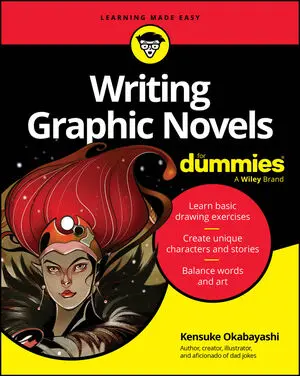You’ve decided you want an agent. The next step is to find a great one who will not just sell your children's book to a publisher, but who is ethical, who will take the time necessary to properly develop your work and present it in the best light, and with whom you can develop a long-term working relationship.
Keep in mind that agents are in business to make money. This means that they’re very selective about the authors they choose to work with. Many agencies receive thousands of queries, proposals, and manuscripts from prospective authors each year; of necessity they reject far more authors than they accept. If an agent turns you down, don’t let that rejection slow you down, too — submit to another agent or consider submitting your manuscript directly to a publisher.
Obtain referrals for a children's book agent
Authors who are happy with their agents are usually very willing to refer you to them. So the next time you’re chatting with a children’s book author, be sure to ask him who his agent is, whether he’s happy with her, and whether he can make an introduction for you.
(Or if you’ve already found an agent you like, ask for a list of clients you can contact for feedback before signing any sort of contract.)
If you don’t know any children’s book authors, consider other avenues for obtaining referrals.
Do you have a friend, relative, or acquaintance who already works with a good literary agency? Or do you frequent Internet forums where people share stories about their children’s book publishing experiences? Or do you ever enroll in writing workshops led by successful children’s book authors? If so, approach the people you meet who already have an agent they’re using.
Literary agencies are businesses, but few advertise in a traditional way. Although they might run a small advertisement in the back of a writer’s magazine, it’s unlikely that you’ll see an agent’s face on a highway billboard or in a television commercial. Instead, agencies rely on word-of-mouth advertising as well as their own recruiting efforts to bring them new authors.
Research agents and agencies
If you don’t know any agents personally, or if you can’t get referrals to agents, then you’ll need to do some research using online agency listings or print resources.
These directories provide you with agent and agency names, addresses, phone numbers, and detailed information about what kinds of books the agency specializes in representing. Find an agency that looks like it meets your criteria, get the contact information, make sure they are accepting unsolicited (unrequested) submissions, and if they are, get in touch.
As you look through agent directories, be sure to focus only on agencies that specialize in children’s books. Why waste postage? And yes, lots of agencies still prefer snail-mail submissions.
If you have a computer or tablet handy, you may find the following online agent directories to be helpful:
Association of Authors’ Agents (Great Britain)
Note: The Society of Children’s Book Writers and Illustrators provides a list of agents to its members.
Attend conferences
Agents sometimes participate in conferences and workshops to find promising new talent — some agencies even sponsor them. Because the promising new talent may very well be you, you should consider attending writers’ conferences for the express purpose of hooking up with an agent. Here’s how to increase your chances of finding a great agent at a conference:
Check out writers’ conference or workshop agendas and participant lists to see whether agents will be attending.
Be sure to memorize your pitch and bring a few copies of your manuscript. Although it’s highly unlikely an agent at the conference or workshop will ask for a copy then and there (unless you paid for a manuscript or portfolio consultation in advance), you never know.
Agents attending conferences and workshops are often very popular people, so it may be hard to corner one to make your pitch. They may be leading roundtable discussions or making presentations, plus getting pitched by other prospective authors.
Get a jump on the competition by making contact with the agent via e-mail before the conference to let her know you’re hoping for a minute of her time to introduce yourself. Be patient, be polite, but be persistent — eventually, you’ll have an opportunity to make your pitch.






